Is Russia preparing to invade Ukraine? And other questions
Are Russian forces getting ready for war in Ukraine? Despite a series of talks involving Russia and the West, it remains unclear and the fear of invasion remains.
Russia seized part of southern Ukraine in 2014 and backed separatists who started a conflict in large areas of the east.
Now Russia warns of military measures if the West does not meet its demands and says its patience is at an end. The US is warning of unprecedented sanctions. So how serious is the risk of conflict?
Where is Ukraine?
Ukraine shares borders with both the EU and Russia, but as a former Soviet republic it has deep social and cultural ties with Russia, and Russian is widely spoken there.
Russia has long resisted Ukraine's move towards European institutions and it is now demanding it never joins Nato, a demand rejected by the Western alliance.
It was when Ukrainians deposed their pro-Russian president in early 2014 that Russia moved in, seizing and annexing Ukraine's southern Crimean peninsula. Russian-backed separatists then captured large swathes of Ukraine's two eastern regions collectively known as the Donbas.
Is there a real threat of invasion?
Conflict between rebels and Ukraine's military has continued to this day, although a shaky ceasefire is in place.
But it is the Russian forces operating beyond the Ukrainian border that are of most concern. Western intelligence services say they number up to 100,000.
Polish Foreign Minister Zbigniew Rau has warned that the risk of war is greater now than at any time in the past 30 years. The threat looks real, but not imminent.
After 10 January talks with his US counterpart in Geneva, Russia's Deputy Foreign Minister Sergei Ryabkov insisted there were "no plans, no intentions to attack Ukraine". Armed forces chief Valery Gerasimov has denounced reports of an impending invasion as a lie.
However, President Vladimir Putin has spoken of "appropriate retaliatory military-technical measures" if what he calls the West's aggressive approach continues. And Mr Ryabkov has compared the current situation to the 1962 Cuban missile crisis, when the US and Soviet Union came close to nuclear conflict.
Mr Putin has spoken several times to US President Joe Biden, and Russian officials have met US, Nato and European security counterparts. But Russian officials say Western rejection of its key demands is leading to a "dead end" with no reason for further talks.
The US says Russia has offered no proof that it will not invade - or explanation for the 100,000 troops it has deployed. So Western intelligence services as well as Ukraine's have suggested a Russian incursion or invasion could happen some time in early 2022.
CIA director William Burns suggested President Putin was "putting the Russian military, the Russian security services in a place where they could act in a pretty sweeping way".
The question is whether it is all posturing in an attempt to force Nato away from Russia's back yard. And if it fails, then what next?
Russia has bolstered its support in rebel-held areas of Ukraine, providing Russian passports for 500,000 people, so if it does not get what it wants then it could justify any action as protecting its own citizens.
What does Russia want?
Russia has spoken of a "moment of truth" in recasting its relationship with Nato and it is demanding a swift, point-by-point response to its demands.
Its main demand is to stop Nato's expansion any further to the east. "For us it's absolutely mandatory to ensure Ukraine never ever becomes a member of Nato," Mr Ryabkov said after talks in Geneva.
Moscow accuses Nato countries of "pumping" Ukraine with weapons and the US of stoking tensions. President Putin has complained Russia has "nowhere further to retreat to - do they think we'll just sit idly by?"
But Russia also wants Nato to abandon military activity in Eastern Europe, which would mean pulling out its combat units from Poland and the Baltic republics of Estonia, Latvia and Lithuania, and not deploying missiles in countries such as Poland and Romania.
In short, it wants Nato to return to its pre-1997 borders. Russia has also proposed a treaty with the US barring nuclear weapons from being deployed beyond their national territories.
A clue to Mr Putin's thinking on Ukraine came in 2021 when he wrote a lengthy piece calling Russians and Ukrainians "one nation" and labelled Ukraine's current leaders as running an "anti-Russian project". Ukraine was part of the Soviet Union, which collapsed in December 1991 and Mr Putin said it was the "disintegration of historical Russia".
Russia is also frustrated that the 2015 Minsk peace deal for eastern Ukraine is far from being fulfilled. There are still no arrangements for independently monitored elections in the separatist regions. Russia denies accusations that it is part of the lingering conflict.
How is the West responding?
Nato's Western military alliance is defensive so Russia's attempt to tie its hands for the future or persuade it to withdraw from the old Eastern Bloc states have fallen flat.
Some of Russia's idea's were "non-starters", in the words of Deputy Secretary of State Wendy Sherman. "We will not allow anyone to slam closed Nato's open-door policy."
Russia's idea of a treaty also seems doomed as it would bar European Nato members from delivering US nuclear weapons.
President Putin's overall demands have annoyed not just the more recent Eastern European Nato members but also the Nordic states of Sweden and Finland. They are not part of the alliance but have strengthened ties.
"We will not let go of our room for manoeuvre," said Finland's prime minister, and Sweden's military commander said any change would entirely undermine his country's military strategy.
Ukrainian President Volodymyr Zelensky is looking for a clear timeline from the alliance.
"It is up to Ukraine and 30 [Nato] allies to decide when Ukraine is ready to join the alliance," Nato Secretary General Jens Stoltenberg has said. Russia has "no veto, no right to interfere in that process".
European leaders are adamant that Russia cannot just decide on the future with the US, and Washington has said it is committed to "working in lockstep" with its allies.
But between the West's red lines and military conflict, there is "a lot of scope that we must make use of", says German Defence Minister Christine Lambrecht.
Ukraine's president has called for an international summit to resolve the conflict, involving France and Germany along with Russia. The four countries have met regularly as part of the so-called Normandy Format, but President Putin wants any deal on Ukraine linked to his demands from Nato.
How far will the West go for Ukraine?
The US has made clear it is committed to helping Ukraine defend its "sovereign territory".
President Biden has threatened Russia's leader with measures "like none he's ever seen" if Ukraine is attacked, while stressing that deploying US troops unilaterally is "not on the table".
So how far will US guarantees of "strong economic and other measures" go to help Kyiv?
The biggest tools in the West's armoury appear to be sanctions and supporting the Ukrainian military.
The ultimate economic hit would be to disconnect Russia's banking system from the international Swift payment system. That has always been seen very much as a last resort, but Latvia has said it would send a strong message to Moscow.
Another key threat is to prevent the opening of Russia's Nord Stream 2 gas pipeline in Germany, and approval for that is currently being decided by Germany's energy regulator. Germany Foreign Minister Annalena Baerbock has made clear if there is any further Russian escalation then "this gas pipeline could not come into service".
There could also be measures targeting Russia's RDIF sovereign wealth fund or restrictions on banks converting roubles into foreign currency.
font images google
fonte rdaction https://www.bbc.com/news/world-europe-56720589


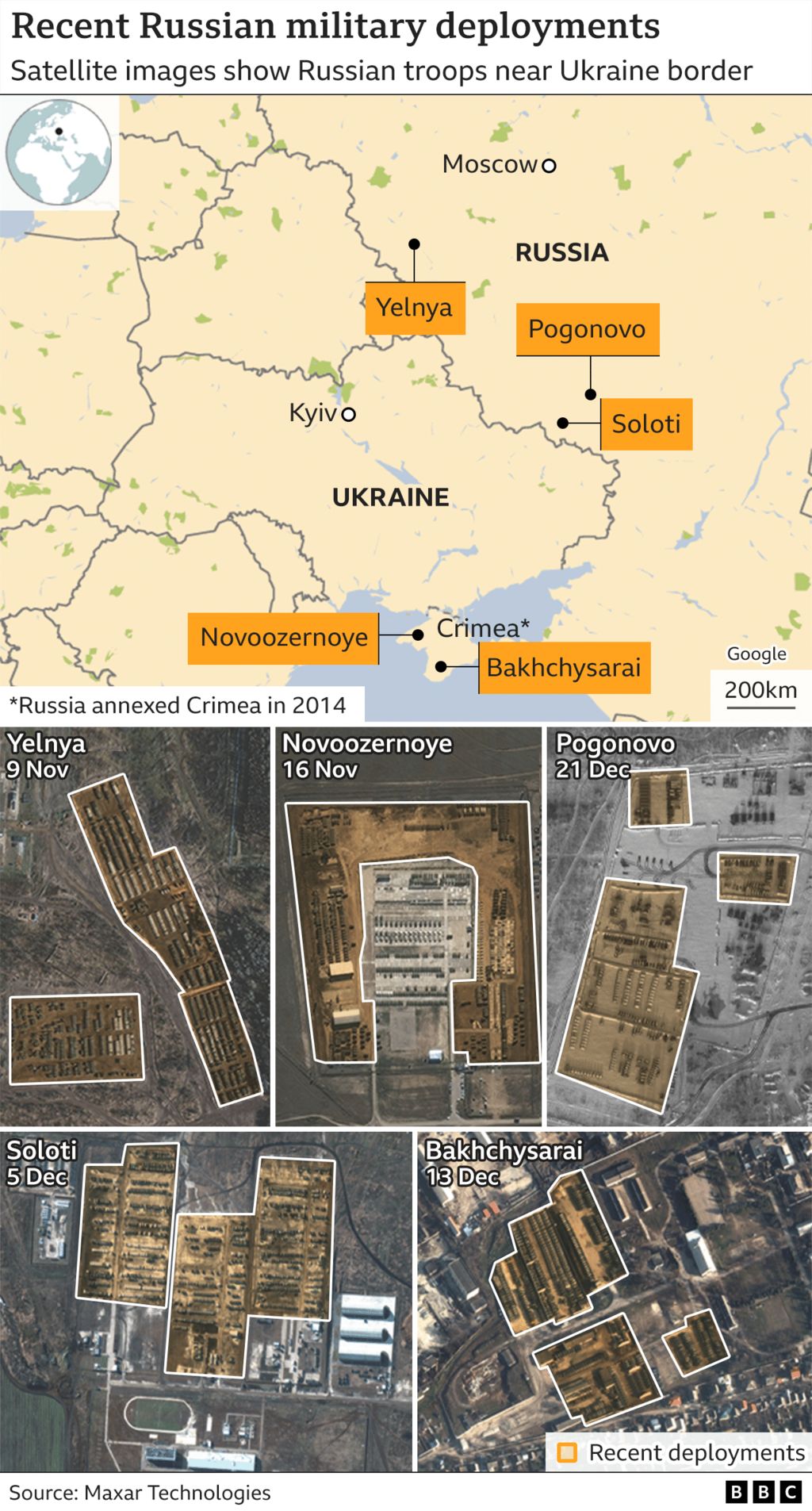

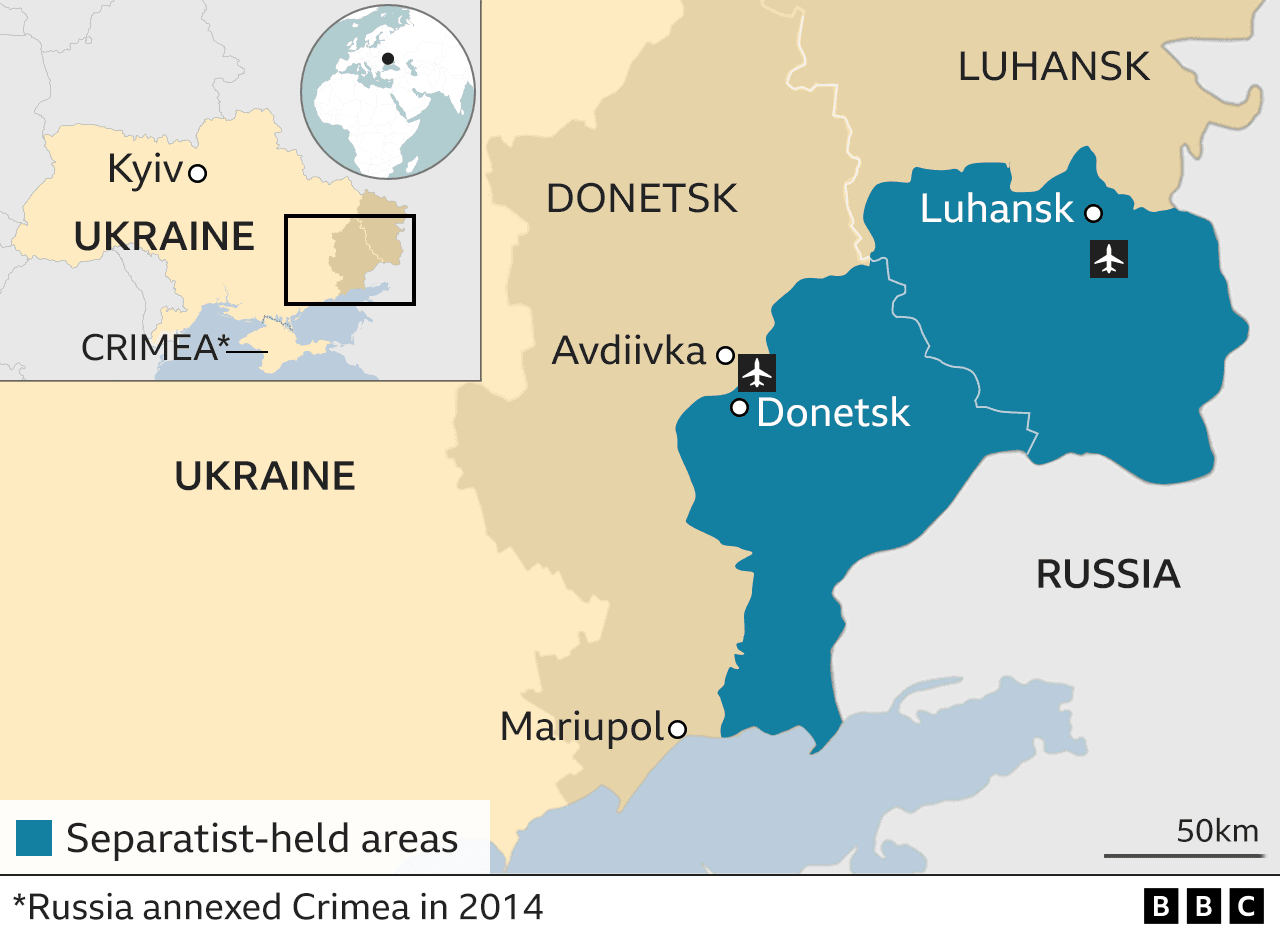
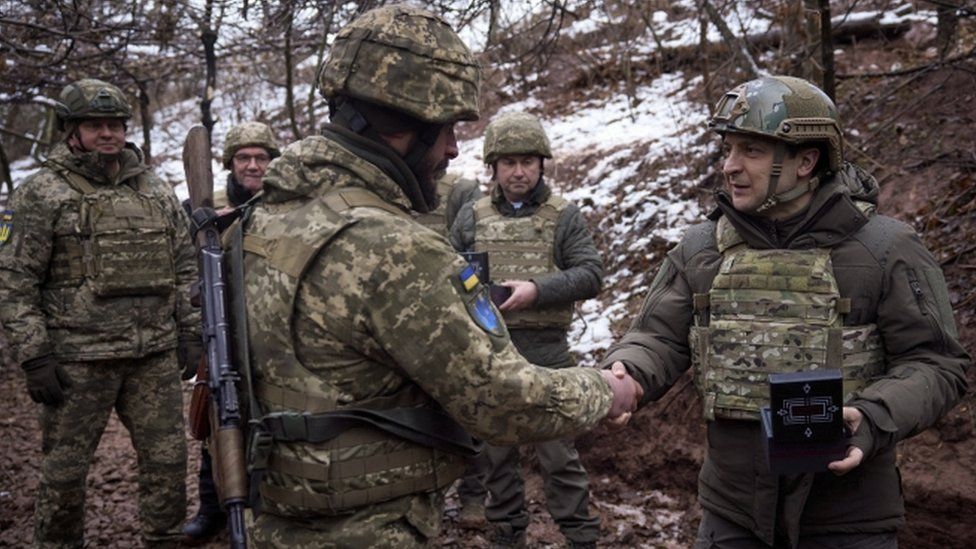
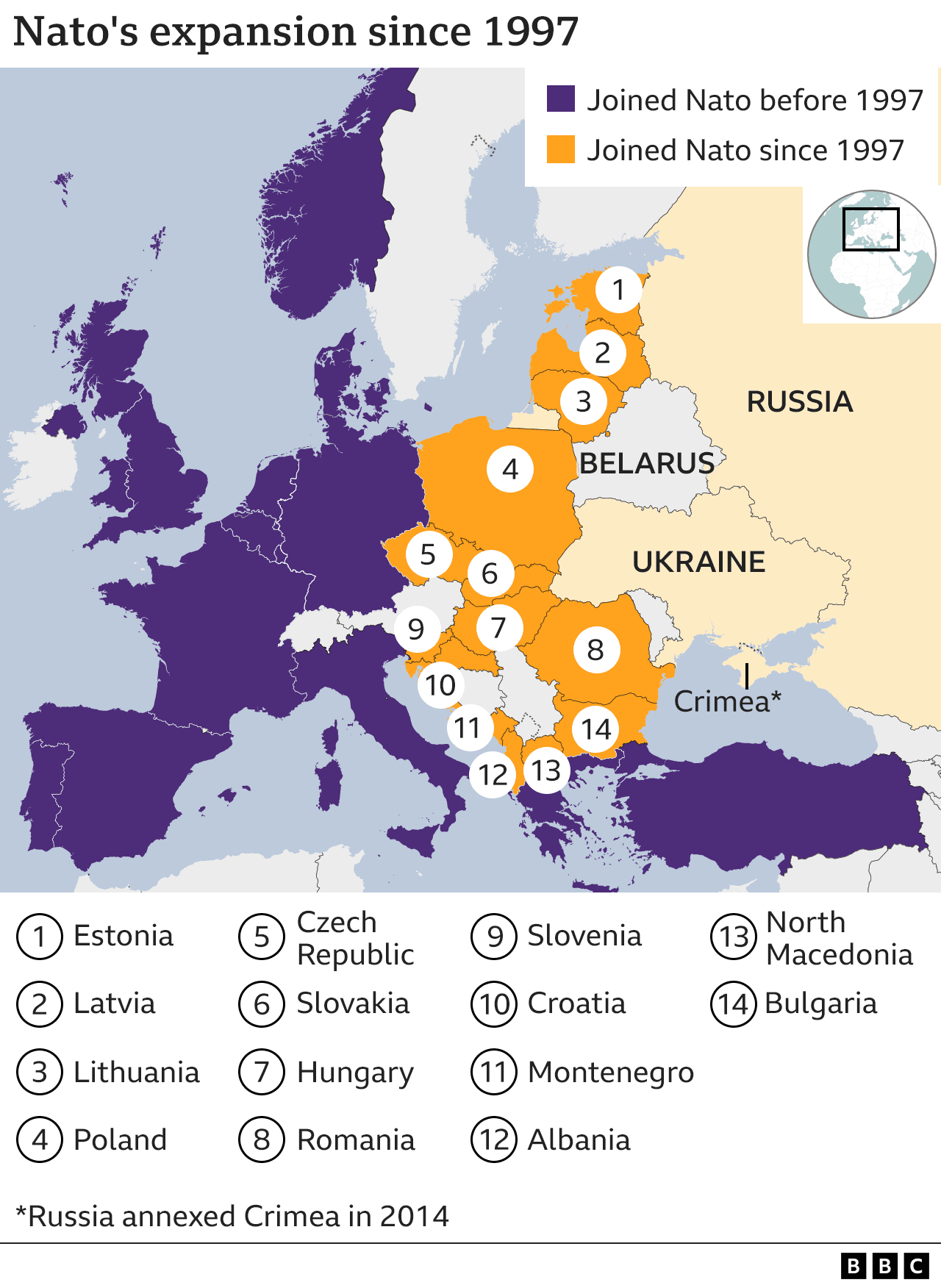
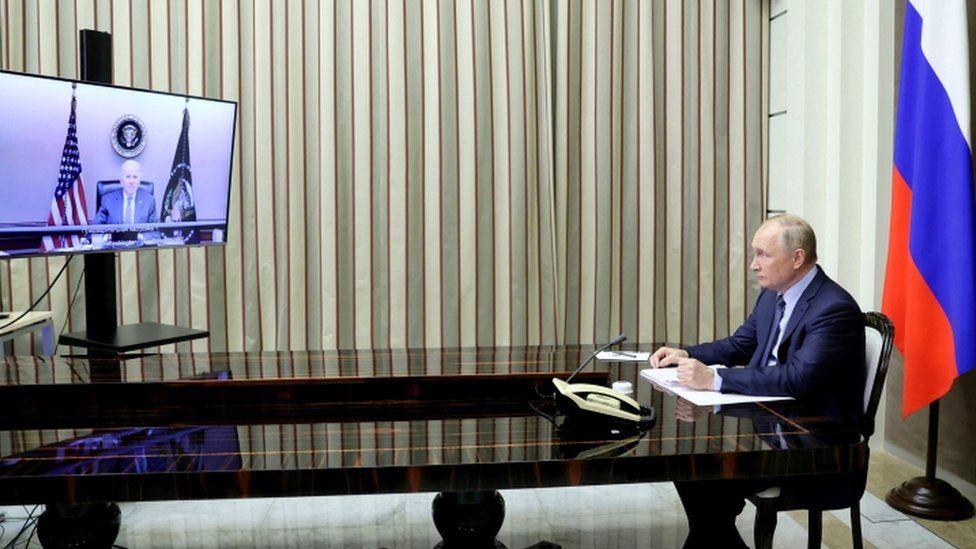



Comentários
Postar um comentário